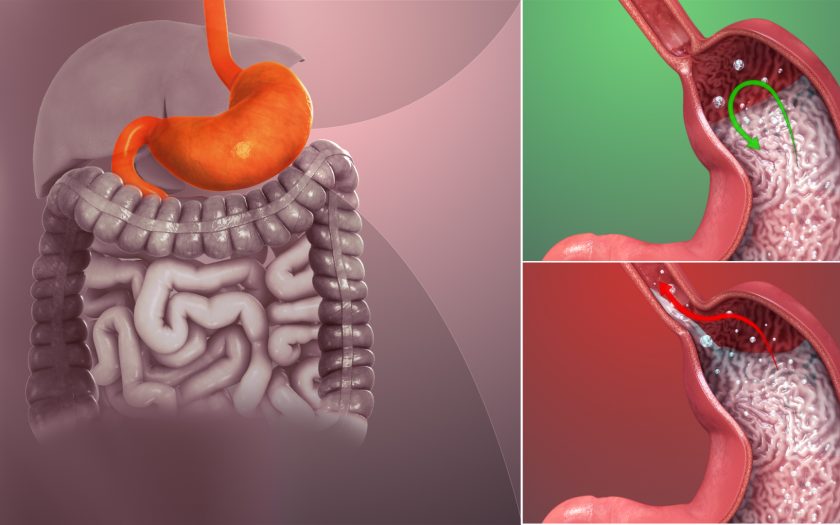Do not lie down on the couch with a laptop and a hot dog in hand.
You should have only easily digestible healthy food on your plate, which does not irritate the mucous membrane of the gastrointestinal tract. After eating, take a half-hour walk (at a calm, slow pace) along a quiet alley.
After eating, do not rush to rearrange the cabinets and do hard work.
Lifting heavy objects and strenuous exercise are only possible after an hour and a half of rest, even if you have eaten only half a banana before.
Learn to eat slowly and carefully, chewing food to a liquid state, and never swallow large chunks.
Try to plan your day so that there is time for five or six meals.
Quit smoking and lose weight.
The symptoms of the disease will decrease if you can say goodbye to smoking and extra pounds.
Great attention should be paid to your clothes.
All clothing should be made of natural fabrics and not too tight. It is necessary to give up belts and everything that compresses the stomach.
Strengthening the nervous system.
Learn to think positively and find positive sides in any, even the saddest event. Anxiety deprives us of the ability to look at things or events correctly and makes us insecure. Such anxiety is the cause of many diseases. You need to control your mood. Get used to one minute three times a day to look for positive aspects in your life. Consciously learn to “catch” negative thoughts and immediately translate them into positive ones.
Great mood is a very important thing. You should try to maintain a positive attitude as long as possible. The ability to control the mood is extremely powerful. Thanks to this ability, you can easily recover.
Check your diet and eat often but in small portions.
By “often” is meant eating 5-6 times a day. Intervals between meals are calculated in such a way that you need to eat something every 2.5-3.5 hours, because the body is not easy to perform some basic functions, such as digestion of food entering the stomach. Small portions help digest food faster.
Preference should be given to food that is steamed, stewed, baked or boiled. This food is digested faster without irritating the inflamed esophagus. If you continue to eat fatty foods and fried potatoes, there will be no good digestion.
During training, be very careful and do not overload yourself.
Never lift heavy weights or exercise too hard. Light exercise is useful for GERD. Only with the right approach will there be a positive result.
Strengthen the abdominal muscles.
There is one simple way to tone the abdominal muscles – swimming. With good muscle tone, it will be easier for you to get rid of the symptoms of the disease, and recovery will be much faster.
In gastroesophageal reflux disease, exercises that must be performed lying down are categorically contraindicated, because in this position the stomach contents return to the esophagus, increasing the discomfort.

